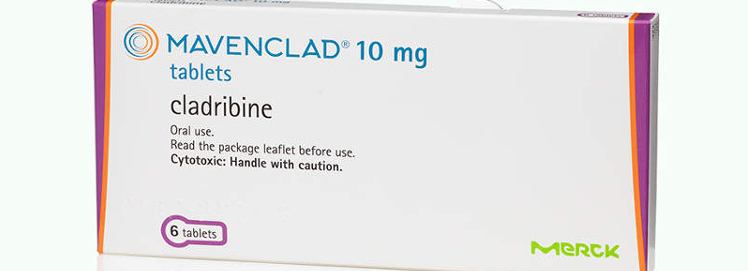
- MAVENCLAD® (cladribine tablets) receives updated NICE guidance without full reappraisal
- Update follows concerns raised by the Accelerated Access Collaborative (AAC) and NHS England that previous guidance was restricting access
- Gadolinium-based MRI scanning no longer required prior to prescribing cladribine tablets for highly active multiple sclerosis
Merck announced on November 25th that the National Institute for Health and Care Excellence (NICE) has updated the Technology Appraisal Guidance (TAG) for the use of MAVENCLAD® (cladribine tablets). Cladribine tablets can now be used as an option for treating highly active multiple sclerosis (MS) in adults without the requirement of a gadolinium-enhanced MRI scan.
“Since the positive NICE recommendation for cladribine tablets in November 2017, uptake and access for first line use has been restricted due to the requirement for a gadolinium-enhanced MRI. As well as historical safety concerns about gadolinium, the areas of enhancement are transient and if the lesion is no longer visible then the patient is ineligible for treatment,” commented Belinda Byrne, Merck UK & Ireland Medical Director. “By working in partnership with the Accelerated Access Collaborative (AAC), NHS England and NICE we are delighted that we’ve been able to address this key barrier and help ensure all eligible MS patients in the UK can benefit from this innovative medicine.”
The AAC is a cross government-industry collaboration working to make the UK one of the most pro-innovation healthcare systems in the world. The AAC brings industry, government and the NHS together to remove barriers to uptake of innovations, so that NHS patients have faster access to innovations that can transform care.1
In September 2018, the AAC identified 12 ‘rapid uptake products’ already available within the UK system. These products have the potential to improve the lives of 500,000 people and save the NHS up to £30 million,2 with one of these treatments being cladribine tablets for treating highly active MS in adults.1 The AAC and NHS England promptly raised concerns to NICE that the requirement in the guidance for gadolinium-enhancing MRI prior to treatment was restricting access to cladribine.
“Cladribine has been selected by the Accelerated Access Collaborative (AAC) as a rapid uptake product due to the clear benefits it offers for both MS patients and the UK healthcare system. The gadolinium-enhanced MRI requirement in the previous NICE guidance was a significant barrier for many clinicians and their patients,” said Dr Waqar Rashid, consultant neurologist at St George’s University Hospitals Trust. He continued,
We are extremely pleased that NICE has revised its guidance after feedback from NHS England and the ACC, and that this innovative medicine will now be more rapidly and widely available to patients with highly active MS.
David Martin, Chief Executive Officer of the Multiple Sclerosis Trust added, “We are very pleased that NICE have amended criteria for access to Mavenclad. Now people with MS face one less barrier to accessing an effective MS treatment.”
Cladribine tablets are a short-course oral treatment available in the UK for adults with highly active relapsing MS, that can help reduce relapses for up to four years with a maximum of 20 days’ oral treatment, taken in the first and second year.3,4 Following completion of treatment in the first two years, no additional treatment is required in years 3 and 4.5
References
1NHS England. The Accelerated Access Collaborative. https://www.england.nhs.uk/ourwork/innovation/accel-access Accessed November 2019
2 Gov.UK. https://www.gov.uk/government/news/faster-access-to-treatment-and-new-technology-for-500000-patients Accessed November 2019
3 Giovannoni, G et al. Mult Scler J 2018;24(12):1594-1604
4 Giovannoni G, et al., N Engl J Med 2010;362:416-26
5 MAVENCLAD® Summary of Product Characteristics
6 MS International Foundation. Who Gets MS? https://www.msif.org/about-ms/epidemiology-of-ms/ Accessed November 2019
7 MS Trust. MS in the UK. https://www.mssociety.org.uk/care-and-support/resources-and-publications/publications-search/ms-in-the-uk Accessed November 2019